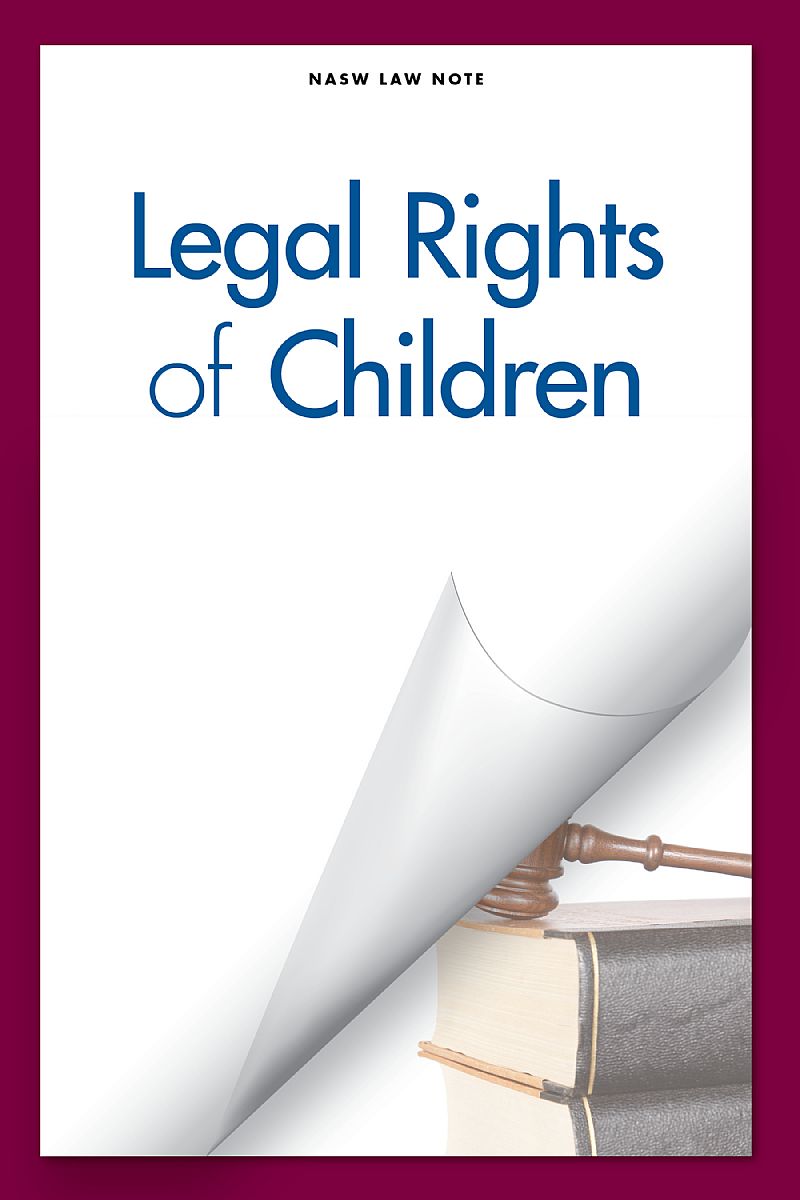
NASW Law Note: Legal Rights of Children
Page Count: 125
ISBN: 978-0-87101-396-5
Published: 2010
Item Number: 3965
$21.31
Legal Rights of Children is part of a series of General Counsel Law Notes written with the support of the NASW Legal Defense Fund. This Law Note highlights the various approaches taken by states concerning how the legal status and age of a child affect the right to sue, the right to make treatment decisions concerning the child’s care, the right to contract, the right to educational services, and the right to be free from abuse and neglect. The complex legal issues surrounding the determination of what constitutes a “family” or a “child” in the 21st century are also reviewed, as are adoption laws, the foster care system, divorce and child custody, visitation, and support.
The NASW General Counsel Law Note series provides information to social workers about legal topics of concern to the social work profession. The Law Notes are developed with the support and financial assistance of the NASW Legal Defense Fund (LDF). Contents vary by title, but generally include legal information, civil procedure, contracts, legal methods, and glossaries. Checklists, timetables, case law, and other resources help social workers understand and exercise their legal rights and responsibilities as well as the rights and responsibilities of their clients.
The National Association of Social Workers (NASW) developed this law note to aid social workers who work with children and families. For social workers providing professional assistance to children, it is helpful to have a general understanding of the legal issues that underpin the determination of a child’s rights. Because family law is primarily state law, this law note highlights the various approaches taken by states concerning children’s legal rights.
First, this document addresses the legal status of a child, and how age affects a child’s rights, including the following: the right to sue, the right to make treatment decisions concerning the child’s care, the right to contract, the right to educational services, and the right to be free from abuse and neglect. Next is a discussion of the ways in which a child’s legal status relates to the child’s family and relationships. The complex legal issues surrounding a determination of what constitutes a “family” or a “child” in the 21st century are also reviewed, as are adoption laws, the foster care system, divorce and child custody, visitation, and support.
This law note also includes a discussion of the admissibility of social workers’ testimony on child custody at custody hearings, and also provides social workers with information concerning the family court processes in which they might find themselves interacting with child clients. Finally, five appendices are included at the end of the law note, providing the following:
- state-by-state information about a minor’s1 ability to make decisions regarding healthcare;
- the right of noncustodial parents to access a child’s health records;
- a state-by-state summary of child custody laws;
- a state-by-state summary of guardian ad litem statutes; and
- a summary of state laws regarding a minor’s competency to testify.
The information and resources provided in this document offer an introduction to various legal issues affecting social workers’ practice with children and families. The discussion is not exhortative and should not be used as a substitute for consultation with an attorney in the jurisdiction in which the child or family is located. Additional information about legal issues of interest to social workers can be found on the Web pages prepared and updated by the NASW Legal Defense Fund.
